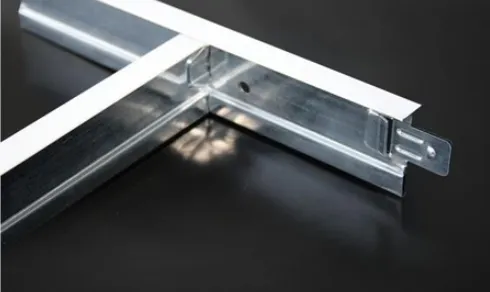10 月 . 31, 2024 20:43 Back to list
Exploring PVC Gypsum Innovations for Sustainable Construction Solutions
Understanding PVC Gypsum An Innovative Building Material
In recent years, the construction industry has seen a surge in the use of innovative materials, with PVC gypsum emerging as a top contender. This unique blend of polyvinyl chloride (PVC) and gypsum offers numerous advantages that cater to the demands of modern building practices. By exploring the properties, benefits, and applications of PVC gypsum, we can appreciate why it has garnered attention among architects and builders alike.
What is PVC Gypsum?
PVC gypsum is a composite material that combines the lightweight and fire-resistant properties of gypsum with the durability and moisture resistance of PVC. Gypsum itself is a natural mineral composed of calcium sulfate dihydrate, commonly used in drywall and plastering. When combined with PVC, a versatile plastic material, it enhances the performance of traditional gypsum products, making them suitable for a broader range of applications.
Advantages of PVC Gypsum
1. Durability One of the standout features of PVC gypsum is its exceptional durability. Unlike traditional gypsum boards that can succumb to moisture and mold, PVC gypsum remains unaffected by humidity, making it an ideal choice for areas prone to water exposure, such as bathrooms and kitchens.
2. Fire Resistance Gypsum is naturally fire-resistant due to its chemical composition. PVC gypsum retains these fire-resistant properties, providing an essential safety feature in residential and commercial buildings. This makes it a preferred option in regions where fire codes are stringent.
3. Ease of Installation PVC gypsum is lightweight, which facilitates easier handling and quicker installation compared to heavier materials. This aspect can accelerate construction timelines and reduce labor costs, making it an attractive option for builders.
pvc gypsum

4. Cost-Effectiveness While the initial cost of PVC gypsum may be slightly higher than traditional options, its longevity and reduced maintenance needs often lead to lower overall costs over the lifespan of the material. This financial benefit becomes significant, especially in large-scale projects.
5. Eco-Friendly Option As sustainability becomes a crucial consideration in construction, PVC gypsum stands out. Many manufacturers are committed to using recycled materials in their production processes, contributing to a reduced environmental footprint. Additionally, the longevity of PVC gypsum means fewer replacements and less waste over time.
Applications of PVC Gypsum
Due to its versatile properties, PVC gypsum finds application across various sectors. In residential buildings, it is widely used for wall partitions, ceilings, and decorative features. In commercial spaces, its resistance to moisture makes it ideal for bathroom installations, while its fire-resistant nature is crucial for office buildings where safety regulations must be adhered to.
Moreover, PVC gypsum can be a creative choice for designers looking to achieve unique aesthetics. It is available in various textures and finishes, allowing for customized designs that cater to diverse tastes.
Conclusion
In summary, PVC gypsum represents a significant advancement in building materials, offering durability, fire resistance, ease of installation, cost-effectiveness, and eco-friendliness. As more architects and builders recognize the benefits of this innovative product, it is likely to become a standard material in modern construction projects. With its versatility and performance, PVC gypsum is not just a trend but a sustainable solution that meets the challenges of contemporary architectural design.
-
Revolutionizing Interior Design with Ceilings t grid Suspended SystemNewsOct.29,2024
-
Revolutionizing Ceiling Design with ceiling access panel with Gypsum Tile WaterproofNewsOct.29,2024
-
Revolutionizing Interior Design with PVC Gypsum Ceiling: A Comprehensive GuideNewsOct.29,2024
-
Elevating Interior Design with High quality Mineral Fiber Ceiling TilesNewsOct.29,2024
-
Revolutionizing Interior Design with PVC Gypsum Ceiling: A Comprehensive GuideNewsOct.29,2024
-
Elevating Interior Design with High-Quality Mineral Fiber Ceiling Tiles: A Comprehensive GuideNewsOct.29,2024







